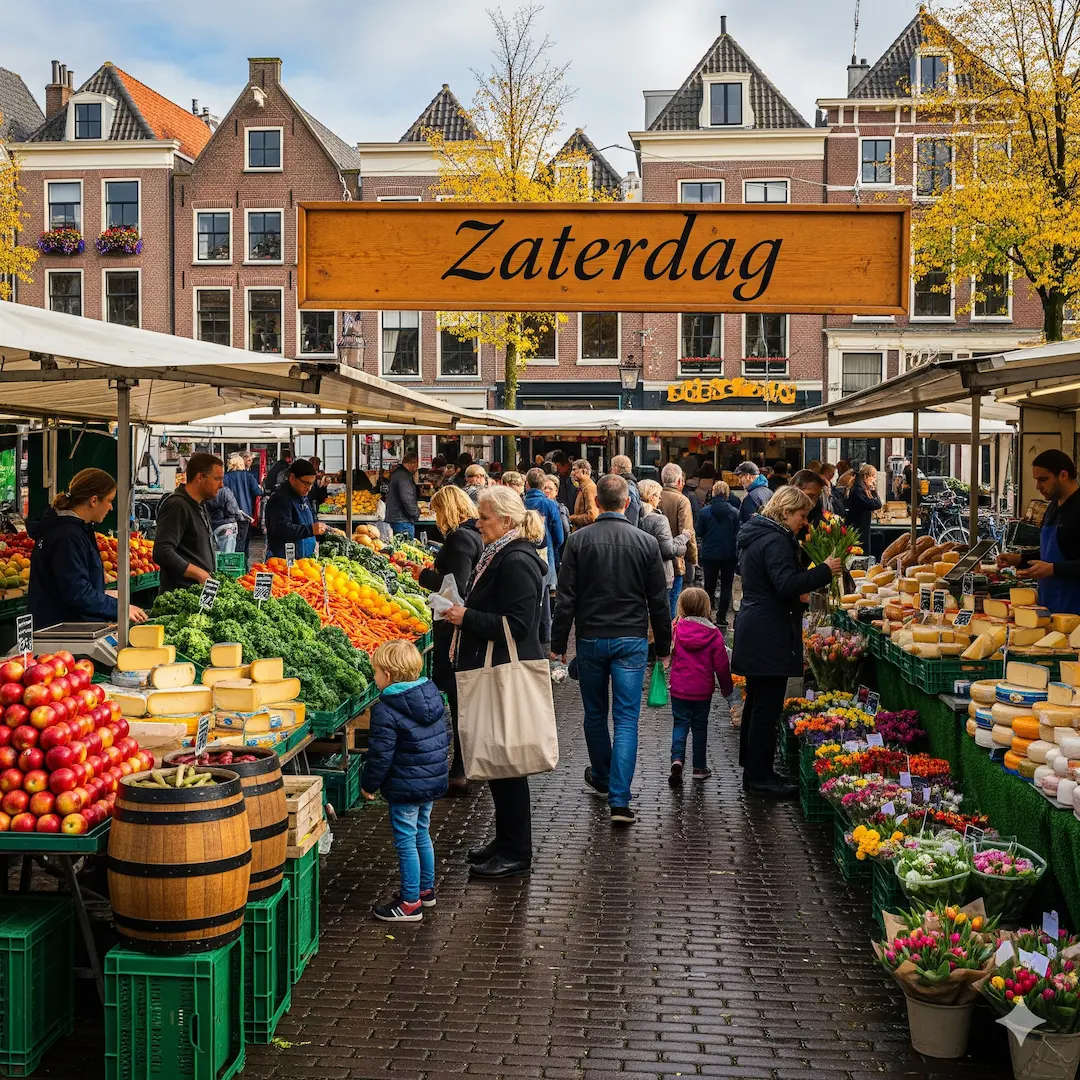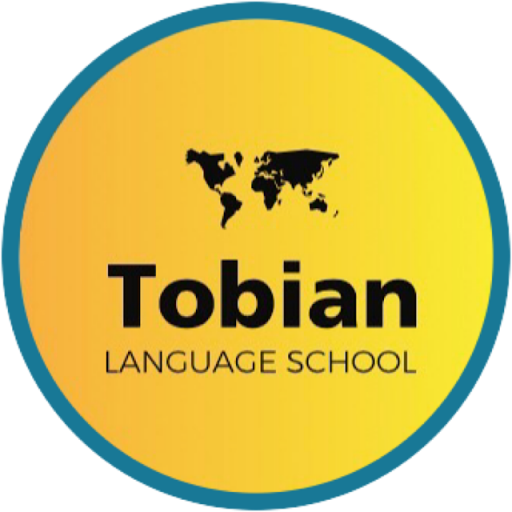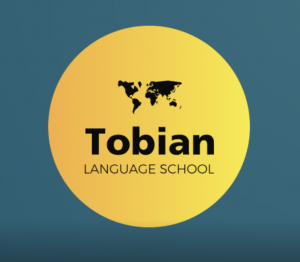The Dutch days of the week:
The Dutch days of the week: More than just names – A journey through everyday life and culture
- August 29, 2025
- By Tim Lorenz

Table of Content
Introduction
We take the days of the week for granted, so much so that we rarely think about how interesting their names and meanings actually are.
If you want to learn Dutch, it’s exciting to learn the days of the week – ‘dagen van de week’ in Dutch – because they tell little stories about culture, history and everyday life.
Here we take you on a journey of discovery through the seven Dutch days of the week.
‘Maandag’ – Monday - The day of the moon
The first day of the week is called ‘Maandag’.
This word comes from ‘maan’, which means moon. The moon has always been an important companion to humans, controlling the tides and serving as a guide since ancient times.
In the Netherlands, ‘maandag’ is the classic start to the working week. After an often relaxed weekend, ‘maandag’ is the day when everyday life and work begin again.
An important tip for learners: if you say ‘Ik heb maandag vrij’ (I have Monday off) to a Dutch person, you will immediately understand how to talk about days off. Start learning today

‘Dinsdag’ – Tuesday - The day of the god Tyr
‘Dinsdag’ is the second day and is often associated with a god from Norse mythology – Tyr, the god of war and courage. This ancient name is still embedded in the Dutch language.
In practice, ‘dinsdag’ is a popular day for meetings and school events, because Monday is often used for settling in.
For language learners, it is good to know that “dinsdag” is often abbreviated to ‘Di’ – this makes it easier to find appointments in the calendar.

‘Woensdag’ – Wednesday - The day of Wodan
The middle day of the week is called ‘Woensdag’ and goes back to ‘Wodan’ (also known as Odin), the famous god from Germanic mythology.
The day symbolises the middle of the week, often a turning point when you prepare for the remaining days.
When learning Dutch, you will notice that ‘woensdag’ is a little more difficult to pronounce – a good opportunity to practise your language skills!
The correct emphasis is on the first syllable: WO-en-sdag.

‘Donderdag’ – Thursday - The day of thunder
‘Donderdag’ means Thursday and has its origins in the word ‘donder’, which means thunder.
It is reminiscent of Thor, the god of thunder.
For the Dutch, ‘donderdag’ is often an important day for sports and leisure. Many clubs offer training sessions on this day.
When you hear ‘donderdagavond’ (Thursday evening), you know that most activities start then.

‘Vrijdag’ – Friday - The day of freedom
‘Vrijdag’ means free or to be free, and that is what makes this day special: in the
Netherlands, Friday is often a day of anticipation for the weekend.
Many companies allow a relaxed Friday, and it is common to go for a drink with colleagues after work – called ‘vrijmibo’, short for ‘vrijdagmiddagborrel’ (Friday afternoon drink).
If you are learning Dutch, it is worth getting to know this tradition so that you can easily join in conversations.

‘Zaterdag’ – Saturday - The day of rest and work
Saturday, ‘zaterdag’, is a very special day in Dutch.
It comes from the word “Zaaidag”, which originally meant ‘sowing day’ – the day for sowing seeds in the fields.
Nowadays, ‘zaterdag’ means leisure time, shopping or cultural excursions for many people.

‘Zondag’ – Sunday, the day of the sun and rest
Sunday is called ‘zondag’ and literally means ‘sun day’. In the past, it was a day when people rested and turned towards the sun – today, in the Netherlands, it is a day for family, relaxation and often for trips to the countryside.
The word ‘zondag’ is often used in the context of relaxation and leisure. Sentences such as ‘Ik ga zondag wandelen’ (I’m going hiking on Sunday) are typical.

Why the days of the week are so important – and what that means for you as a Dutch learner
The days of the week are more than just markers of time. They reflect the history, culture and everyday life in the Netherlands.
If you know the background, you will better understand how Dutch people think and speak. At Tobian Language School, we have many years of experience teaching Dutch in a way that not only teaches you the language, but also helps you understand the cultural context.
This makes learning more fun and you can feel more confident in conversations.
A few tips for your everyday life with the Dutch days of the week
Memorise the abbreviations: ma, di, wo, do, vr, za, zo.
Practise pronunciation aloud and have fun, for example with a song or a short conversation.
Plan your week with the Dutch days of the week – for example: ‘Ik werk maandag en dinsdag’ (I work Monday and Tuesday).
Ask your Tobian Language School Dutch language teacher about how to say your typical activities on each day of the week.
The days of the week are key to understanding Dutch culture and language. They accompany you through everyday life – and if you know them well, you are a big step closer to feeling truly at home.
We at Tobian Language School look forward to accompanying you on your learning journey and welcoming you to our classes soon!
Why Tobian Language School is the best choice for learning Dutch
If you want to learn Dutch, Tobian Language School is an excellent choice.
We offer small groups with a maximum of three students, so that each person can be supported individually and you receive a lot of personal attention. If you need to learn quickly, we also offer highly effective one-to-one lessons that are tailored to your specific needs.
Our price-performance ratio is very fair. High-quality language teaching does not have to be expensive, and we attach great importance to ensuring that you get the best possible learning success for your money.
Our experienced teachers come from different age groups and are passionate about teaching. They make lessons lively and encourage positive interaction, so that learning is not only effective but also enjoyable.
Flexibility is particularly important to us: We usually teach online, though in some cases we can offer in-person Dutch classes too. Just send us an email or Whatsapp message with your preferred time frames and we will design your schedule accordingly.
Wherever in the world you are or go, your classes are there too.
For us, studying at a school with attitude means more than just teaching languages. We take responsibility – locally and globally. That’s why we support initiatives such as Globewise, a Dutch non-governmental organisation that facilitates educational projects for children and young people in disadvantaged regions.
Education opens up perspectives and changes lives – that is what drives us.
As a language school based in the Netherlands, our focus is naturally on Dutch. But even if you want to learn one of the 32 other languages we offer, you will find the right solution with us – whether you are a child, a student or a professional.
If you want to learn Dutch now or in the future, don’t hesitate to send us a message. Or follow our social media channels to stay up to date.
We look forward to welcoming you to our classes soon!

